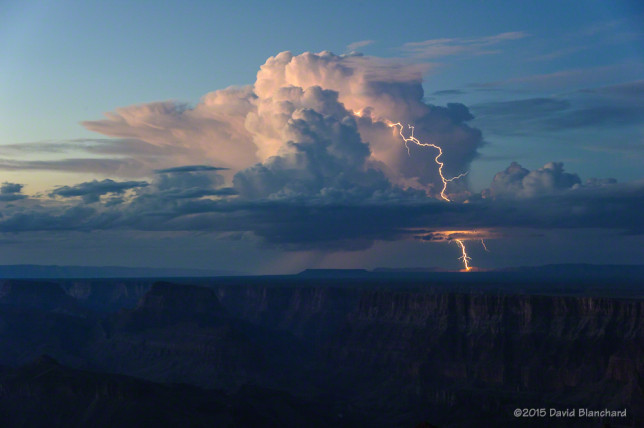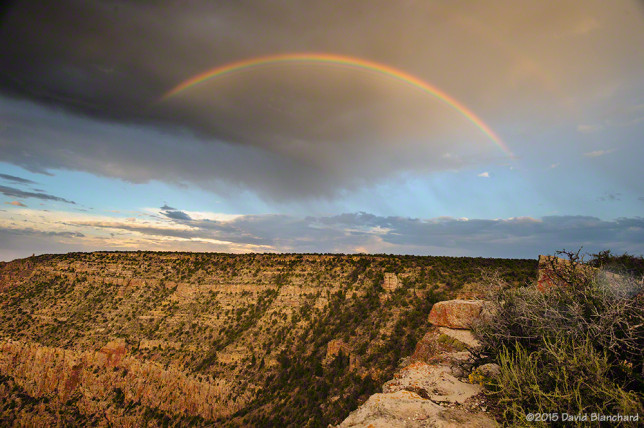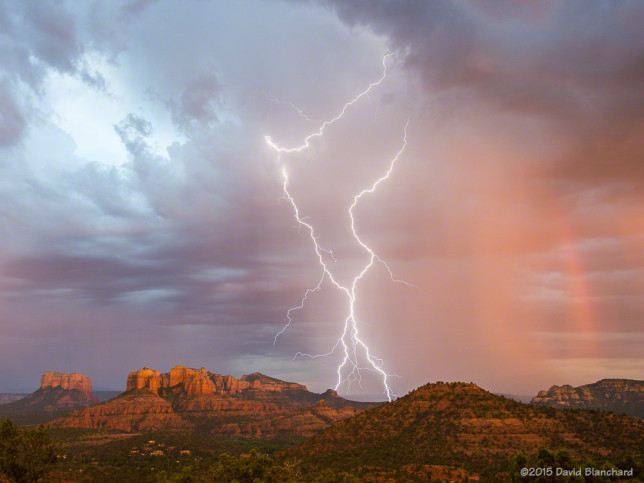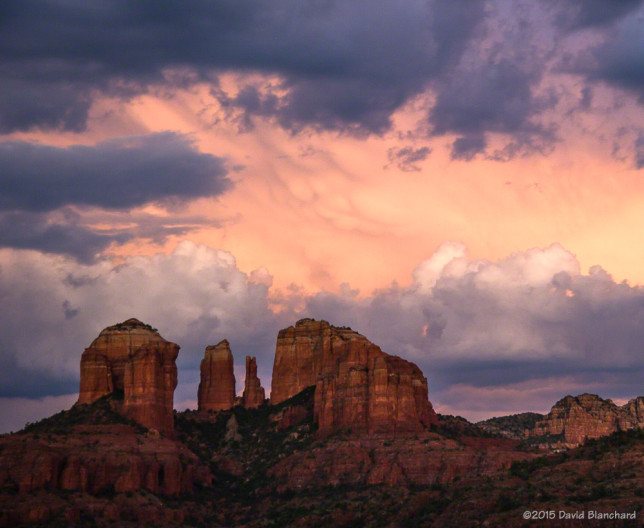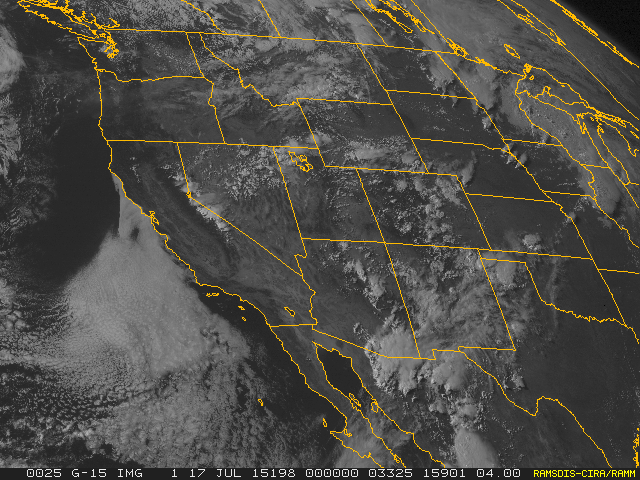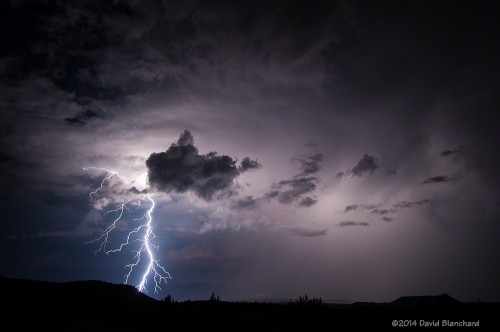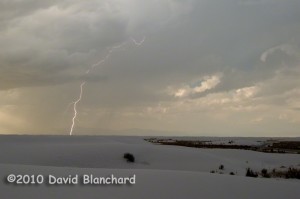With a weak short-wave trough and residual monsoon moisture moving across Arizona there were possibilities that this would be a “monsoon transition” event. The vertical wind shear was in place but instability was marginal. The end result was a general lack of supercells—but that didn’t mean that the convection wasn’t interesting.
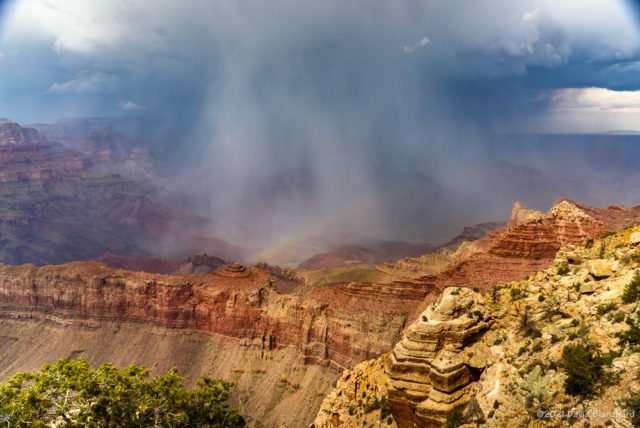
Multiple waves of thunderstorms moved across Grand Canyon with the earliest storms appearing before noon. With each wave, there was rain with some lightning followed by clearing and even some rainbows.
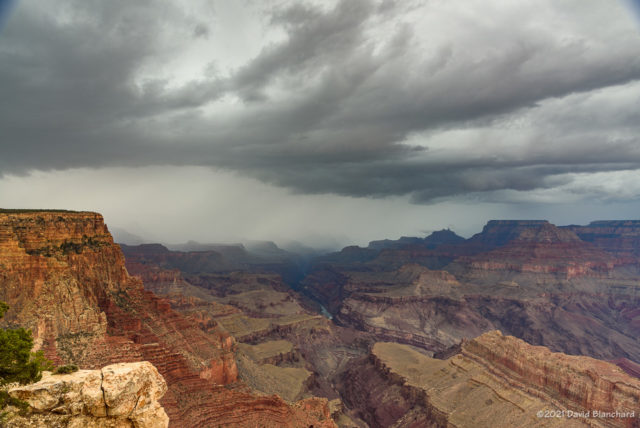
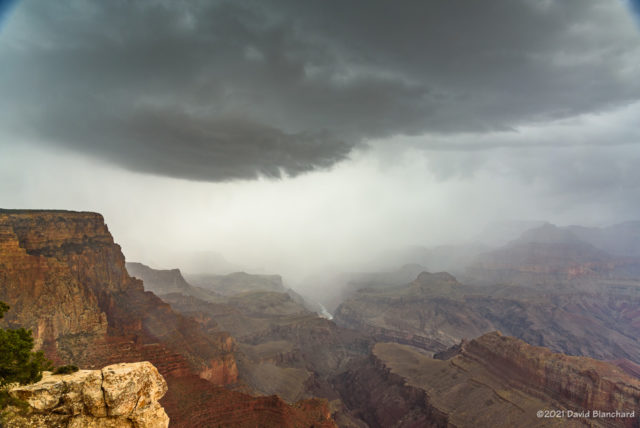
The first rainbow occurred while the sun was high overhead resulting in the rainbow appearing almost directly below in the canyon. This rainbow did not have brilliant colors but being able to see a rainbow over the Unkar Delta was interesting.
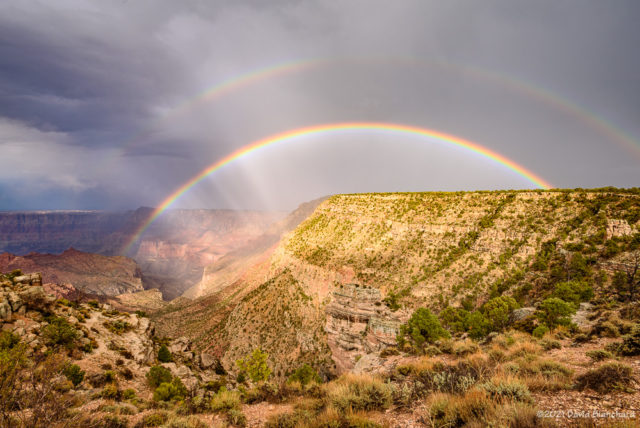
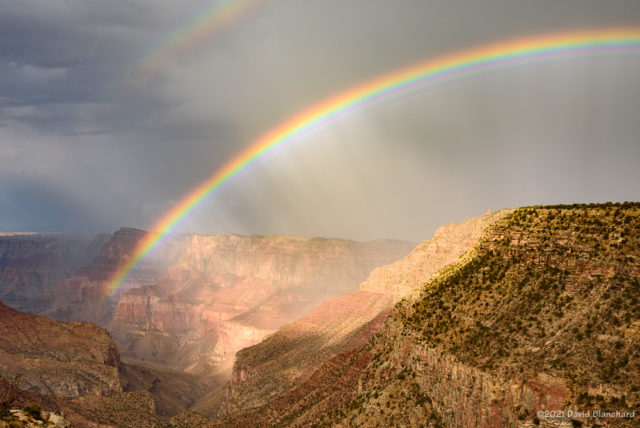
More showers…more rainbows. That was how the afternoon played out.

Late in the day I relocated to Yavapai Point for sunset colors and hoped for another rainbow. A partial rainbow appeared over the South Rim—but the arch did not continue up and over across the canyon.
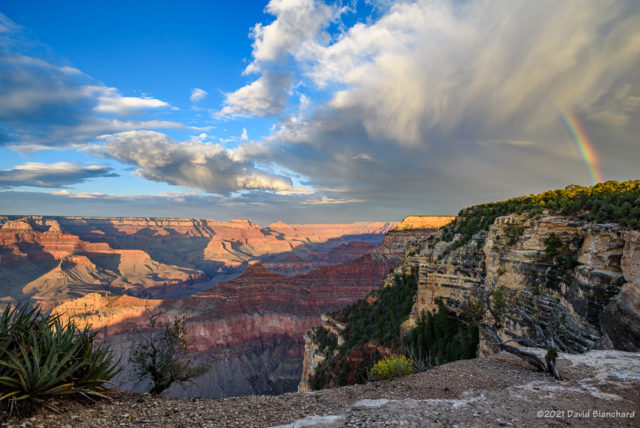
A fun day.
